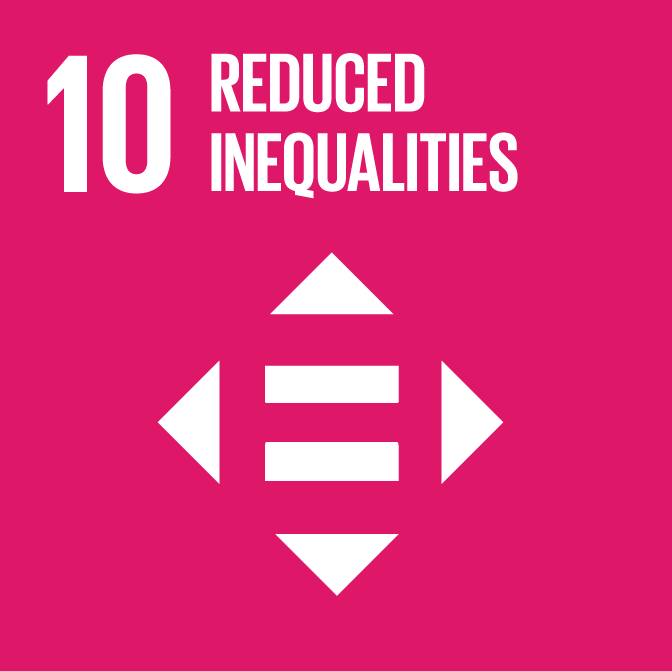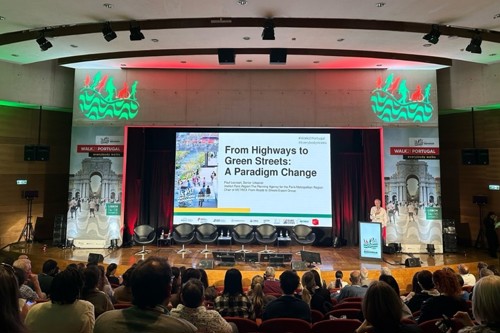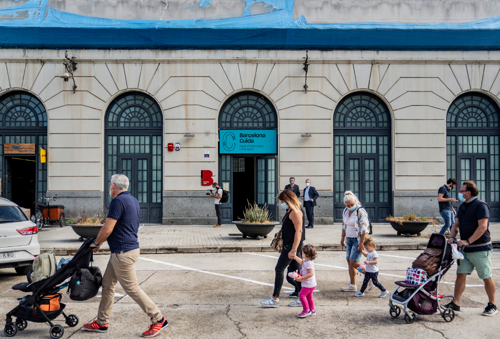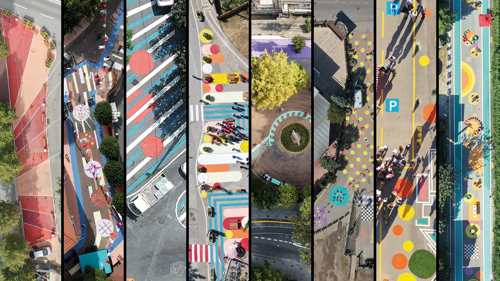Tackling Women’s Time Poverty: Designing Caring Cities
By: Julia Munroe, Policy Officer, Metropolis
In cities across the world, the rhythm of daily life relies on an invisible infrastructure: care work. From preparing meals and raising children to looking after older adults and managing households, care work sustains not just families and communities but entire economies. Yet, this essential labor is chronically undervalued and falls disproportionately on the shoulders of women.
Around the world, 606 million working age women are unable to undertake paid work because of full-time unpaid care responsibilities, in comparison to 41 million men outside the paid labour force for the same reason. Thus, women experience ‘time poverty’, with many juggling paid jobs and unpaid responsibilities in a ‘double shift’.

Why Does Care Matter for Cities?
There is a lot at stake. Not just for the women whose potential - for economic and political engagement, personal growth, and leisure - is stifled but for the cities that miss out on their diverse contributions and perspectives.
Cities are hubs of economic, social, and political activity - and hubs of care. Urban governments shape the spaces, systems, and services that determine how care is provided, shared, and valued, and who gets cared for, or overlooked. By recognizing and effectively addressing care needs, cities can foster more equitable, inclusive, and thriving communities.
While the importance of care is widely acknowledged, cities often lack the financial resources and practical tools to create effective care systems. Metropolis, the World Association of the Major Metropolises, is stepping in to bridge these gaps by offering funding opportunities, in the form of its recently-launched International Fund for Metropolises: Local Care Systems, through city-to-city exchanges, and through succinct, locally-tailored and practical guidance with Local Care Systems Toolkit.
The Toolkit emerged from a collaborative approach, including city-to-city exchanges and sharing of best practices. In particular, Metropolis brought together Latin American and Middle Eastern cities in Istanbul, in collaboration with Marmara Municipalities Union in June 2024, and African cities together in Dakar, in October 2024, to learn about local solutions to care-related challenges. Many of the case studies highlighted in the Toolkit hail from participating cities of these ‘Solutions Labs’ exchanges.

What Is the Local Care Systems Toolkit?
The Care Systems Toolkit is a dynamic resource designed to support local, regional and metropolitan governments to develop integrated, context-specific care systems. Building on the International Labour Organization’s ‘5R Framework’, the Toolkit offers cities policy solutions to integrate care transversally throughout their work through recognising, reducing and redistributing unpaid care and representing and rewarding paid care and domestic work. The Toolkit is structured around 10 policy solutions and over 30 good practices from around the world to guide and inspire.
Snapshot of the Local Care Systems Toolkit
1.Recognize Care Work: Valuing the Invisible
Care work is often hidden in plain sight, treated as a private responsibility rather than a societal necessity. Cities’ policies and programs can bring it value and recognition.
Using tools like time-use surveys, gender-disaggregated data, and care economy audits, cities can better understand who is doing care work and where support is most needed. Public campaigns and educational initiatives can also challenge stereotypes, creating a culture where care is valued as a shared social good. Cities like Belo Horizonte, Brazil, are guiding the way, with Municipal Care Policies that frame care as a public right, integrating services and infrastructure to ensure both caregivers and care receivers are supported.
2. Reduce the Workload: Freeing Up Time
Women shoulder the majority of care work, often at the expense of their own opportunities. By coupling essential services—such as public laundromats, community kitchens, and day care centers—local governments can help caregivers save hours each week. Urban planning can also play a critical role by co-locating services and making transport routes more accessible for caregivers.
For example, Freetown, Sierra Leone, is currently developing its first ‘Care Block’ which will combine daycare, health services, and adult education in one community hub. In doing so, the city is giving back time and energy to caregivers in a similar manner to Care Systems in Bogota, Iztapalapa and other pioneering local governments.
Redistribute Responsibilities: Changing Norms
For care to be shared equitably, cities must challenge entrenched gender norms and invite men to be part of the change. Workplaces can adopt family-friendly policies like equal parental leave, hybrid work options, and onsite childcare to make caregiving a shared responsibility. Public campaigns and programs like Bogotá’s Men’s Care Schools also play a vital role by teaching men caregiving skills and emotional literacy while dismantling harmful stereotypes.
Reward Care Work: Fair Pay and Conditions
Care workers—especially women in informal or precarious jobs—deserve wages and conditions that reflect the value they bring to society.
Professionalizing care work through training, certifications, and public employment programs can improve wages and job security for caregivers. Cities can also enact labor laws and social protections, like caregivers’ cards, to ensure better access to essential services and fair compensation for their work.
Represent Caregivers: A Seat at the Table
Representation of care workers is essential to addressing precarious conditions, especially for migrant and undocumented workers, who are at a higher risk of exploitation. Yet, caregivers are often excluded from the very systems they sustain.
Promoting public participation, collective bargaining, and access to information strengthens carers rights, wages, and protections, and improves the quality of care in communities. Local governments play a key role through policies, and fostering councils, unions, and inclusive participation processes in which caregivers can share their expertise and influence the design of urban policies.
A Call to Action for Cities
Investing in care is a game-changer for cities—for advancing human rights, economic well-being, and social equity. Valued at $11 trillion annually and representing 9% of the global GDP, care is the backbone of our societies, yet remains invisible in policies and budgets.
Cities must act now to address women’s time poverty and create care systems that support all residents. Metropolis stands ready to support cities and metropolitan areasaround the globe as a key partner in fostering transformative care policies that ensure quality of life for all.
Contact Metropolis or explore the Care Systems Toolkit to make care a priority in your city.






